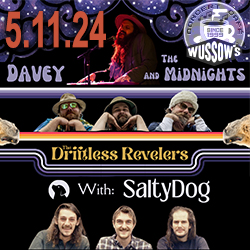Hell is Other People?
Last night, I had the pleasure of preparing a TalkBack session on the Stage II production of Jean Paul Sartre’s “No Exit.”
In the past, when I have read this play with undergraduates, some have seized on the zinger in the last minutes of the play, in which a character proclaims that “Hell is Other People.” Those students have oscillated between quiet, poetic types whom I imagined might prefer Walden and stranger types who might prefer a life more Unabomberesque. But in both cases, they miss the point of the play.
Existentialism, for me, was always defined by two texts: Sartre’s “Existentialism is a Humanism” and Camus’ “The Fall.” In many ways, those two texts are the engineering and the architecture, the chemistry and the gourmet cookery, the science and the art of existentialism.
In the Humanism essay, Sartre compares humans to a pair of scissors. Scissors are defined by their maker — the criteria for their success or failure in life is in the maker’s plan. Humans, as beings without a maker in that way (although there is an attempt at a Christian existentialism), have no default purpose or plan. We must forge our own way, define our own success and failure.
In “The Fall” however, we are introduced to experiences only hinted at the Humanism essay. The narrator of the novel is attempting to come to grips with the ways that his actions define him, but also the ways his inactions define him. Coming, as it does, in the wake of WWII, in this novel, you can imagine that there are recriminations both for what the narrator has done and what he failed to do, and the costs, in human lives, of both.
“The Fall” works as a novel because the narrator confesses to the reader — it is in our ears and eyes that he is reminded that he bears responsibility for his action and inaction. In drafting “No Exit,” Sartre has basically replaced the conversational dynamic between narrator and reader of “The Fall” with a dynamic we can watch — three people locked in Hell.
Hell is other people only if you have failed to accept responsibility for your actions and inactions. Others are reminders of your responsibility (the duty to respond to another, to call yourself into account). If any one of these three characters had accepted that responsibility, there would be no Hell for them, I think.
One of the reasons I love this play is that it reclaims something important, if you understand it within the larger context of Existentialism. “Personal Responsibility” has become a keyword of the political right, but the ultimate expression of personal responsibility has to be existentialism, which was inflected by encounters with colonialism, fascism, as well as Marxism — and comes through on the other side as a genuinely left-wing movement. Personal responsibility is not incompatible with a liberal social conscience.
…
The performance is worth a look. The play has been stripped of the simplicity that characterizes most stagings — this is a multimedia event. As such there are elements that don’t work for me but worked exceptionally well for the younger audience. But overall, I found this staging to be one that effectively illustrates the suffering of at least two of the characters (Inez is played with such rage, it is hard to recognize her struggle, sometimes, as a struggle). The implications of the text are underscored, rather than undermined, by this innovative staging.
Hats off to Derik Iverson, as director and Caity Shea Violette as “Inez.” Extra appreciation to to Jared Walz as “Cradeau”and Carla Weideman as “Estelle,” who made me feel their torment. And I hope I never see that Valet again…
…except tonight, after the show, at the TalkBack. See you there?
Recommended Links:
Leave a Comment
Only registered members can post a comment , Login / Register Here















13 Comments
emmadogs
about 11 years ago[email protected]
about 11 years ago[email protected]
about 11 years agoxenophon
about 11 years ago[email protected]
about 11 years agoemmadogs
about 11 years ago[email protected]
about 11 years agoemmadogs
about 11 years ago[email protected]
about 11 years agoThe Big E
about 11 years agoemmadogs
about 11 years agoHerzog
about 11 years agoAnthony Bennett
about 11 years ago